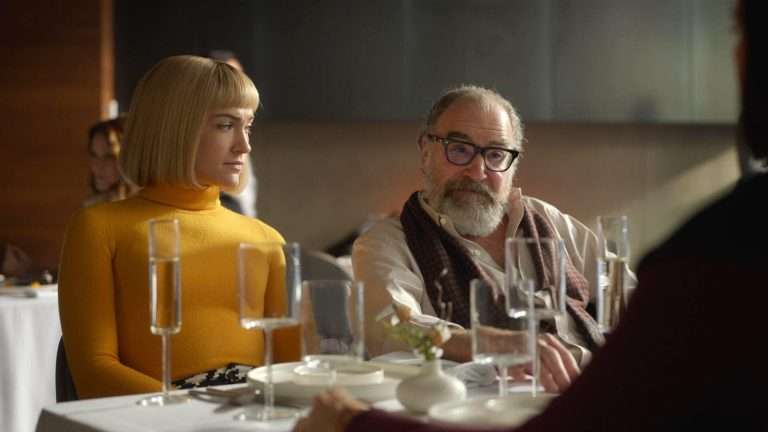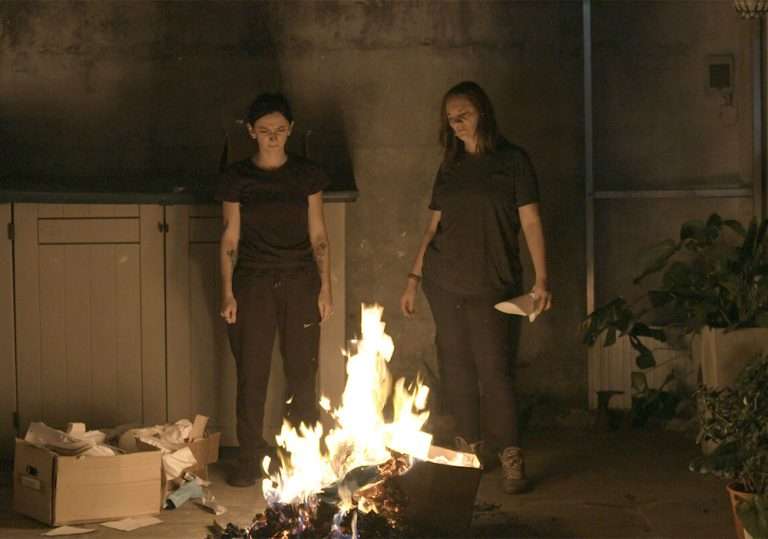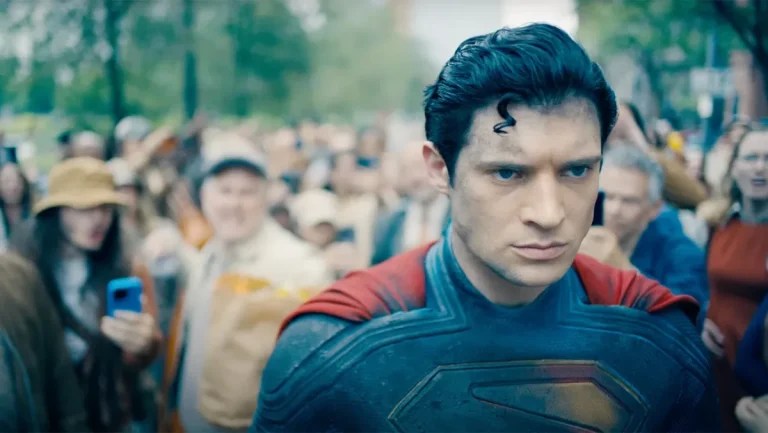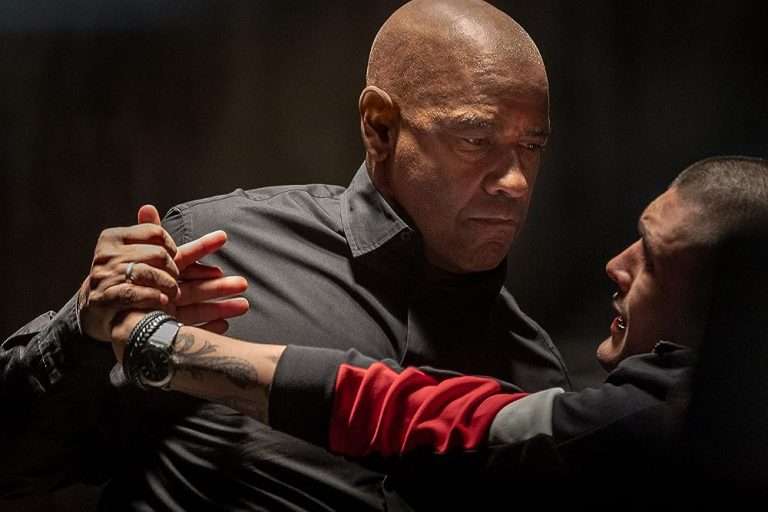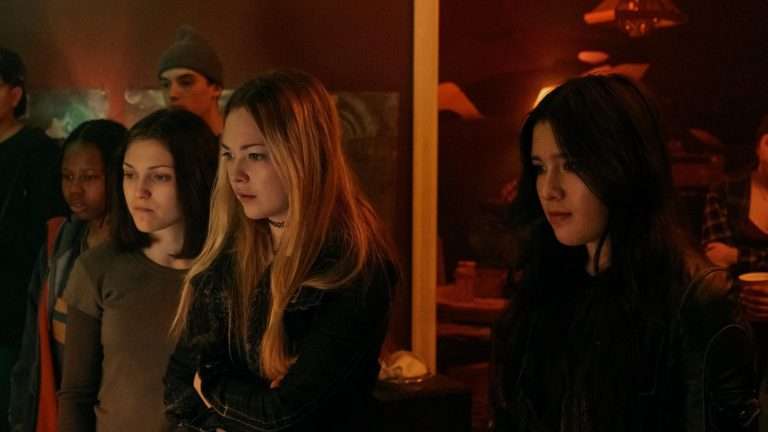In “L.A. Confidential” (1997), Curtis Hanson revives the vintage image of Los Angeles as it presents a universe shaped by varied expectations, upheavals, and dreams. Names, places, and glancing references point to the entangled history of America, particularly Los Angeles. So dense are the entanglements that pulling one thread tugs at another and out comes the skeletons from the cupboard. The film witnesses the city as it puts magnanimous efforts into trying to hold together the world that is exploding.
As the narrative starts rolling, the voice of Sid Hudgens, a dubious journalist at the helm of a gossip-mongering newspaper, offers the viewers the opportunity to play with the paradoxes. He must be the only nonsensical element in the narrative, but his nonsense provides the only alternative way to look at things. The yoking together of non-fictional footage images and fictional images created for the film’s narrative, references that run like inside jokes such as Bob Mitchum’s arrest for marijuana possession, and the constant conflict of inherent confidence and a creeping pessimism: all come together to create the image of the city which adheres to the desires of its populace.
L.A. Confidential (1997) Plot Summary & Movie Synopsis:
It is the year 1953 and the city of Los Angeles, “the paradise on Earth,” is a euphoric dream being peddled. The carefully crafted image is about to burst as organized crime, fostered and emboldened by the Los Angeles Police Department, is at an all-time high. As the LAPD, the Los Angeles Police Department, tries to suppurate the pesky blister maladroitly, the pus – the cabal of narcos, sex work, and the corruption within – mar the otherwise lively and untainted pictures of L.A.
Three LAPD sergeants, Ed Exley, Jack Vincennes, and Bud White, each with their own motives and modus operandi, traverse the murky water of the department. While Exley is wily, Vincennes is flashy; and far removed from the two is White, who gets too caught up in his violent ways but manages to sway our sympathies towards him rightfully.
The drama unfolds on Christmas Eve when White chances upon two posh sex workers, Lynn Bracken and Susan Lefferts, accompanied by one ex-cop Leland “Buzz” Meeks, and a millionaire, Pierce Pratchett. As he drives back to the police station with his partner, Dick Stensland, the White men, led by Stensland, become provoked to see Mexican inmates and mercilessly beat them up. The media leaves no stone unturned to plaster the scandal on the front page of the newspapers, titled the “Bloody Christmas.”
Following the scandal, Stensland and White are dismissed, and Exley, who snitches on them under the garb of restoring the department’s image, is promoted to lieutenant for his ploy. Captain Dudley Smith tethers White with some ‘mysterious muscle job’ while pretending to keep him at arm’s length. Vincennes chances upon a far from chaste, bootleg firm, ‘Fleur-de-Lis.’ Right after, a massacre at the local coffee shop, Nite Owl Coffee Shop, claims the lives of Stensland along with his date, Susan Lefferts.
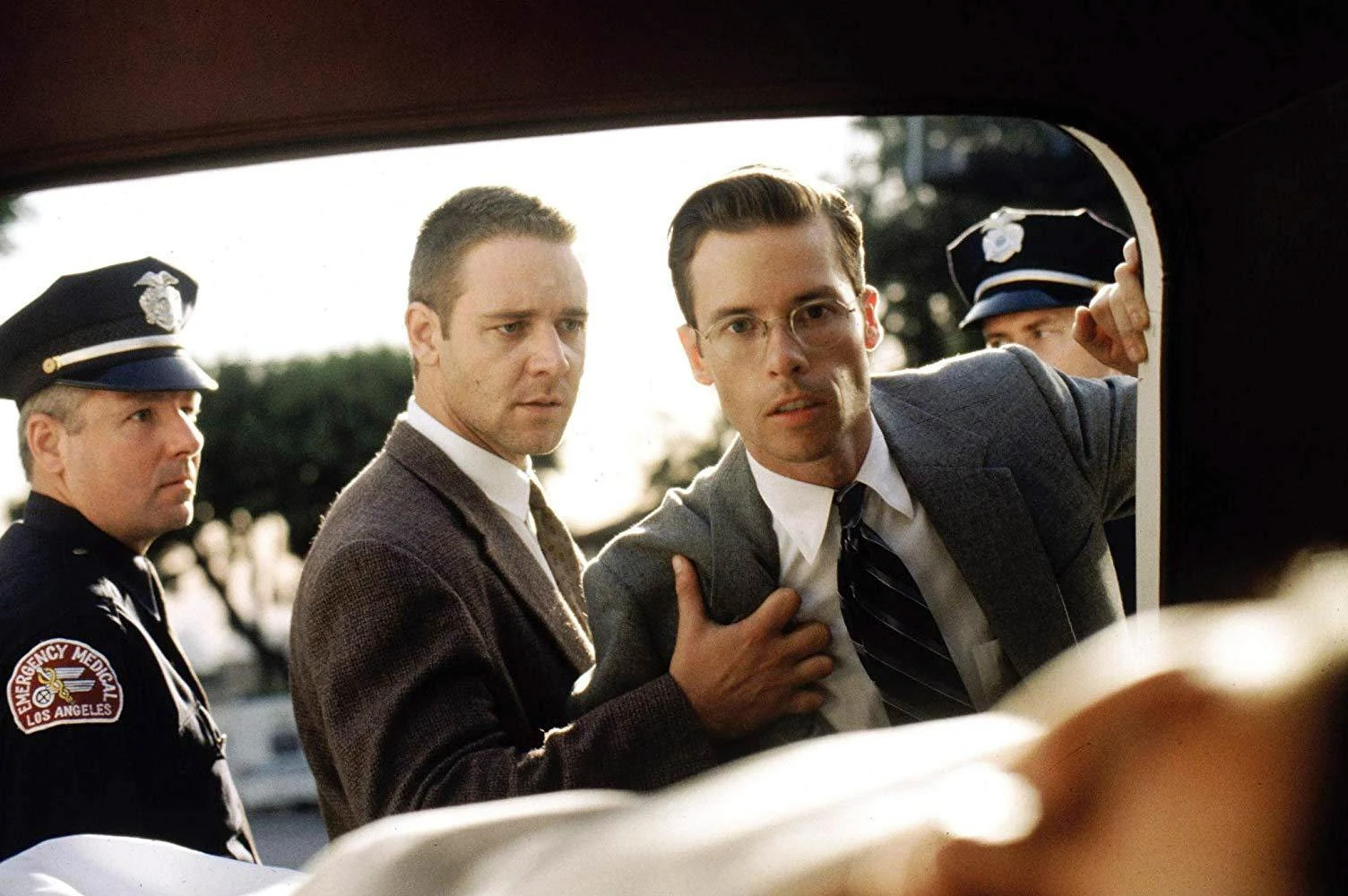
In the aftermath of the arrest of Mafia drug kingpin, Mickey Cohen, an undisclosed name vies for the void. White begins a relationship with Bracken but Exley tries to topple him. Soon, they realize that what they are looking for can only reveal itself, if they start working together.
L.A. Confidential (1997) Movie Ending Explained:
Fleur-de-Lis: “Whatever you desire”
Apart from being the name of the illicit sex ring, Fleur-de-Lis, with its tagline “Whatever you desire,” suggests something of the frenetic verve that permeates the image of Los Angeles. The fabric of L.A. is weaved with individual dreams and aspirations, as the upwardly mobile population would testify. The dreams make the population giddy-headed and it is the same population that later turns into notorious defectors of this dream world. The city is a desire-vending machine: makes celebrities out of gangsters, turns small-town girls into celebrity lookalikes, and lets White police officers frame the blacks and the Mexicans, all at the same time.
The cinematography of Dante Spinotti accentuates this overarching theme. In an article published by The American Society of Cinematographers, Dante is quoted saying “I like to shoot dark images. I’m drawn to the mystery of darkness with brightness in the center; that’s instinctive to me.” When Lynn appears at the liquor shop for the first time, she is mysteriously dressed in a hooded black robe. What endows her appearance with a tinge of mystery is the way the camera distinguishes her from the uninteresting, even if fairly lit, background. The quotidian backdrop falls apart and White is drawn towards the darkly.
Los Angeles and Hollywood: a blissful tryst or an over-encumbered union?
“Real Cities have something else, some individual bony structure under the muck. Los Angeles has Hollywood – and hates it. It ought to consider itself damn lucky. Without Hollywood, it would be a mail-order city. Everything in the catalog you could get better somewhere else” notes Raymond Chandler in his book, The Little Sister.
Despite the city of Los Angeles surfing on the high tide of the film industry’s success, it contained within it a hostility over the understanding that tides both wax and wane. Much like the romantic relationships that pepper the narrative of “L.A. Confidential,” Los Angeles constantly dallies with the shimmer of Hollywood, and discards it when the circumambient darkness catches up.
One might complement this understanding with Sean W. Maher’s observation: “Los Angeles was functioning as cinema’s lumpen Base and barely visible beneath the shimmering Superstructure of Hollywood.”
Lynn Bracken, a Veronica Lake lookalike, is hired by Pratchett to work as a hooker. Women like Bracken– from small cities like Bisbee and with dreams to make it big in Hollywood– are pulled into the ecstasy of the dream and lulled into a drowsiness from which they never spring up. Interestingly, these ‘celebrities’ never rise enough to be shoulder-to-shoulder with the real stars but are relegated to the shadows of the monolithic star images.
What also stands as striking is the way both Hollywood and Los Angeles are mutually antagonistic, unanimously working together to give each other out. Vincennes is drawn by this world of glitz and glamour and turns a technical advisor for Badge of Honour, an illicit act, and profanity at that. Exley, an ace politician himself, knows which strings to pull and gives out this secret to Smith and the other higher-up men.
While it is indeed true that the media is instrumental in creating a mythical image of the city, the television show, Badge of Honour, works on the premise of L.A. cops ‘walk[ing] on water’ to expunge the city of its dirt. In a way, Hollywood turns the image it creates of L.A. upside down and knocks off the invisible crown it had been wearing for this long.


